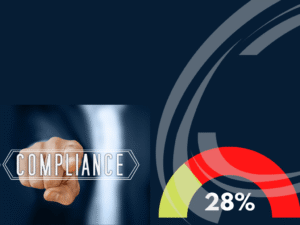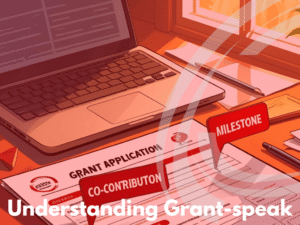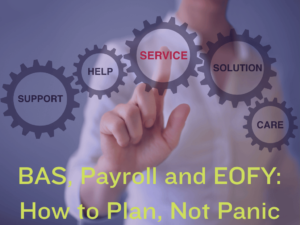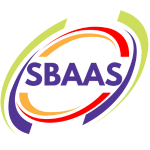Skilled Migration Recruitment – Unlock Global Talent
End-to-end skilled migration recruitment solutions for Australian businesses.
Skilled Migration Recruitment – Unlock Global Talent
Are you ready to elevate your business with top international talent? SBAAS offers comprehensive skilled migration recruitment services tailored to your industry needs. Whether you operate in service and trades, healthcare, animal care, manufacturing, non-profit, or professional services, we’re your trusted partner for navigating the complexities of global hiring.
Our Expertise
We take care of the entire recruitment journey:
- Employer Eligibility Check: We ensure your business meets Australian standards and workplace compliance.
- Recruitment Preparation: Craft compelling job descriptions and targeted advertisements.
- Candidate Shortlisting: Find talent that fits your skills and cultural requirements.
- Visa Processing: Simplify immigration and visa applications with our expert assistance.
- Post-Arrival Support: We ensure a smooth transition from logistics to community integration.
What Sets Us Apart
- End-to-End Solutions: We handle it all from accredited sponsorship registration to onboarding.
- Industry Expertise: We cater to various sectors, ensuring tailored recruitment strategies.
- Compliance First: Adherence to workplace and immigration laws is at the core of our services.
- Seamless Integration: Our support doesn’t end with hiring: Community orientation, tax registration, and beyond.
Frequently Asked Questions
What is a DAMA agreement?
A Designated Area Migration Agreement (DAMA) is a formal arrangement between the Australian Government and specific regional areas to address local labour shortages. It allows employers in designated regions to sponsor skilled and semi-skilled overseas workers for occupations that might not be available under standard visa programs.
DAMAs offer unique concessions, such as reduced English language requirements, salary thresholds, and age limits, tailored to the region’s needs.
Each DAMA outlines its specific occupations and conditions, making it a flexible solution for regional workforce gaps.
Who can sponsor an employee in Australia?
Employers in Australia can sponsor overseas workers if they meet eligibility criteria.
They must be an approved business sponsor, demonstrate a genuine need for the position, and ensure the role cannot be filled locally.
Businesses must also comply with workplace laws and demonstrate financial capability.
Approved sponsorship is typically required under visa programs like the Temporary Skill Shortage (TSS) 482 visa or through agreements like DAMAs.
How much does it cost to sponsor an employee?
Sponsoring an employee involves several costs, including sponsorship application fees, nomination fees, and the Skilling Australians Fund (SAF) levy.
As of 2024, sponsorship fees start at $420, nomination fees at $330, and the SAF levy ranges from $1,200 to $5,000 per year per sponsored employee, depending on business size and visa duration.
Additional costs include placement, migration agent fees and compliance costs.
How do you sponsor someone to work?
To sponsor someone to work in Australia, follow these steps:
- Apply to become an approved business sponsor.
- Nominate a position that matches the skilled worker’s qualifications.
- Submit the nomination application, detailing job duties and meeting salary and market testing requirements.
- Support the worker’s visa application, ensuring compliance with visa conditions.
All steps must adhere to Australian immigration laws and sponsorship obligations.
What do I need to sponsor someone?
To sponsor someone, you need:
- An approved sponsorship status.
- A genuine, full-time position meeting visa requirements.
- Proof of labour market testing or regional agreements, if required.
- Financial capacity to meet salary and support obligations.
- Compliance with workplace laws and immigration conditions.
What does it mean to sponsor a worker?
Sponsoring a worker means an employer formally nominates a skilled individual for a job in Australia, supporting their visa application.
The sponsor is responsible for ensuring the worker’s role aligns with visa requirements and that workplace and legal obligations are met.
Sponsorship also involves compliance with employment and migration laws throughout the visa period.
What are the requirements to get sponsored in Australia?
To be sponsored, a worker must:
- Have relevant qualifications and experience for the nominated role.
- Meet English language proficiency requirements.
- Hold valid health insurance and meet character requirements.
- Be nominated for a position on the Skilled Occupation List or under a DAMA agreement.
What do sponsors get in return?
Sponsoring enables businesses to address skill shortages and hire talent unavailable locally.
It supports business growth, improves operational capacity, and often introduces unique global perspectives to the workplace.
Sponsorship also strengthens regional development in Australia through DAMA agreements.
What are the requirements to sponsor someone?
Sponsors must:
- Be an approved business sponsor.
- Demonstrate a genuine need for the position and that local recruitment efforts were unsuccessful.
- Comply with salary and market testing requirements.
- Abide by Australian workplace and immigration laws.
- Pay the required sponsorship and nomination fees.
Our Clients

























Our Clients - Not for Profit











Our Clients - Government






Capturing Consumer Attention – Strategic Insights for Australian Small Businesses
Discover strategies for Australian small businesses to capture consumer attention amid evolving trends effectively. Explore

One Wrong Step: Why Skipping Appropriate Policies and Procedures Can Sink Your Small Business
Australian small businesses move fast, yet too many forget that appropriate policies and procedures are

Decode Before You Commit: Navigating Grant Jargon, What to Look for Before You Apply
Grants can fuel growth, but only if you understand what you’re signing up for. Learn

The Vanity Trap: What Small Businesses Get Wrong About Social Media Metrics
Impressions aren’t impact. Likes aren’t loyalty. Discover what small businesses get wrong about social media

Stop the Scramble: BAS, Payroll and EOFY – How to Plan, Not Panic
Deadlines shouldn’t feel like danger zones. Learn how Australian SMEs can prepare for BAS, payroll









